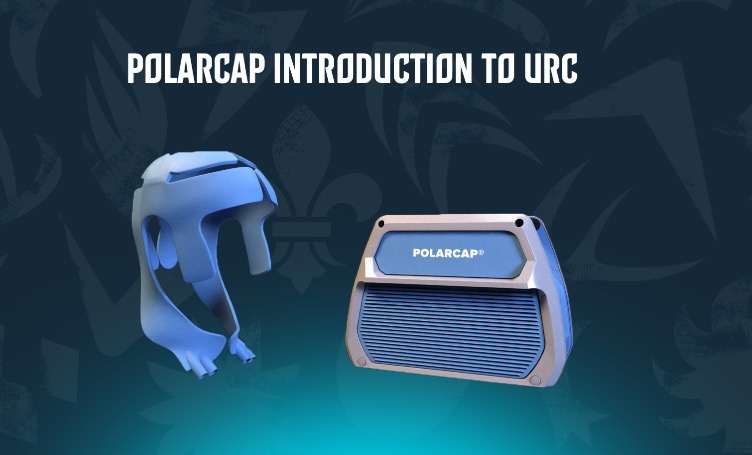The URC has entered an agreement with med-tech company PolarCool to introduce the use of new medical cooling caps on players who have suffered concussive injuries, named PolarCap®.
Over the next year one team in each of the participating URC countries – Scarlets (Wales), Connacht (Ireland), Edinburgh (Scotland), , Vodacom Bulls (South Africa) and Zebre Parma (Italy) – will take part in the initial use of the PolarCap®.
This current feasibility study is focused on the use of the treatment effect of PolarCap® on concussed players. PolarCap® is a portable medical cooling cap that is used in the acute phase of injury, it is intended to reduce elevated brain temperature, and the associated metabolic demand in the brain after a concussion occurs in sports.
PolarCap® has previously been clinically evaluated in a five-year study conducted by Lund University in partnership with the Swedish Ice Hockey League (SHL), which recorded promising data for reducing the number of prolonged concussion compared to concussed players who did not use the PolarCap® treatment.
The decision of the URC to participate in the use of PolarCap®, aligns with several other rugby organisations in the past year – more information can be found here.
The initiative in this space continues an ambition of the URC to work in partnership on research projects that can aid the detection and treatment of concussive injuries.
To date, the URC has supported several instrumented mouth guard trials, the latest one with HITIQ, and has introduced a saliva testing trial with Marker Diagnostics across the competition.
Speaking about this new initiative with PolarCool, Dr Mike Dunlop, United Rugby Championship Medical Advisor and Chair of the league’s Medical Sub Committee, said: “In August 2023 it was a pleasure to host a meeting in Edinburgh, attended by a number of the world’s leading Medics in Rugby, Concussion, and Hypothermic Medicine as well as URC and PolarCool management.
“The outcome of which was a shared opinion that it would be good scientific due process to further study the treatment effects of cooling acute concussions in elite rugby with PolarCap®. This current agreement is an essential first step to that. Thanks must go to the Teams involved, URC and PolarCool.”
PolarCool CEO Erik Andersson said: “It feels fantastic to have finally achieved this goal. The United Rugby Championship led by Medical Advisor Dr Michael Dunlop has conducted a thorough due diligence of the evidence surrounding hyperthermia, concussion, and cooling as a treatment.
“The fact that they now wish to introduce PolarCap® is a great success, both for PolarCool as a company and for PolarCap® as a treatment method. We now look forward to continued cooperation for a potential wider implementation and also working towards a research project in collaboration.”
How does the PolarCap® work?
- The PolarCap® System is a portable cooling system consisting of a cooling unit, a patented silicone-based headcap and an insulating neoprene cover
- The cooling unit supplies circulating cold fluid through the headcap to lower the exercise-induced elevated brain temperature of a concussed athlete.
- The athlete is treated with PolarCap®, in the acute phase of injury for at least 45 minutes after a diagnosed concussion.
- PolarCap® has the Medical Device class IIa for the EU and is CE-marked.
About PolarCool
AB (publ.) PolarCool AB (publ.) is a medical device company that develops, markets, and sells products for sports medicine. The company focuses on the treatment of concussive and sub-concussive brain injury with the portable cooling device PolarCap®. PolarCool AB (publ.) is based in Lund, Sweden, and its shares are listed on Spotlight Stock Market.
PolarCap® Background
PolarCap® is a portable medical cooling treatment for concussion, intended to reduce the metabolic demand in the brain when a concussion occurs during sports, by lowering exercise-induced brain temperature rapidly through controlled cooling.
